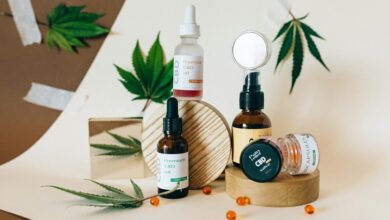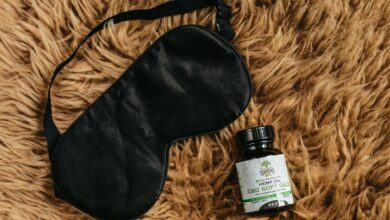How Does Cbd Help Anxiety

CBD has garnered attention for its potential to alleviate anxiety. By interacting with serotonin receptors in the brain, it may enhance mood and reduce anxiety symptoms. Research indicates its efficacy for various anxiety-related conditions. However, individual responses to CBD can vary significantly. Understanding the nuances of how CBD works and the implications for treatment is crucial. What factors should be considered when exploring CBD as a potential solution for anxiety?
Understanding the Endocannabinoid System
Although the endocannabinoid system (ECS) is a complex network within the human body, its primary role is to maintain homeostasis and regulate various physiological processes.
The ECS comprises endocannabinoid receptors that interact with naturally occurring compounds to influence neurotransmitter regulation.
This intricate system plays a vital role in balancing bodily functions, thereby contributing to overall well-being and the freedom to experience a healthy life.
How CBD Influences Anxiety Symptoms
As researchers explore the potential benefits of cannabidiol (CBD) for mental health, evidence suggests that it may play a significant role in alleviating anxiety symptoms.
The CBD effects on the brain involve modulation of serotonin receptors, which can enhance mood and promote anxiety relief.
Research Findings on CBD and Anxiety
Recent studies have provided insights into the efficacy of CBD in reducing anxiety levels.
Clinical studies indicate that CBD may improve anxiety symptoms across various conditions, including generalized anxiety disorder and social anxiety disorder.
However, precise dosage recommendations remain varied, with research suggesting a range between 25 to 600 mg per day, emphasizing the need for individualized approaches to treatment.
Practical Considerations for Using CBD for Anxiety
While the potential benefits of CBD for anxiety are promising, several practical considerations must be taken into account before its use.
Individuals should adhere to established dosage guidelines, as responses to CBD can vary significantly.
Additionally, potential side effects, including fatigue and changes in appetite, should be carefully monitored.
Consulting a healthcare professional is advisable to ensure safe and effective use of CBD for anxiety management.
Conclusion
In summary, CBD shows promise in alleviating anxiety symptoms through its interaction with the brain's serotonin receptors. With varying responses among individuals, personalized approaches to dosage and monitoring are essential for safe use. As research continues to unfold, one must wonder: could CBD be a pivotal tool in the quest for effective anxiety management? Ultimately, consulting healthcare professionals remains crucial in navigating this emerging landscape of anxiety treatment options.





